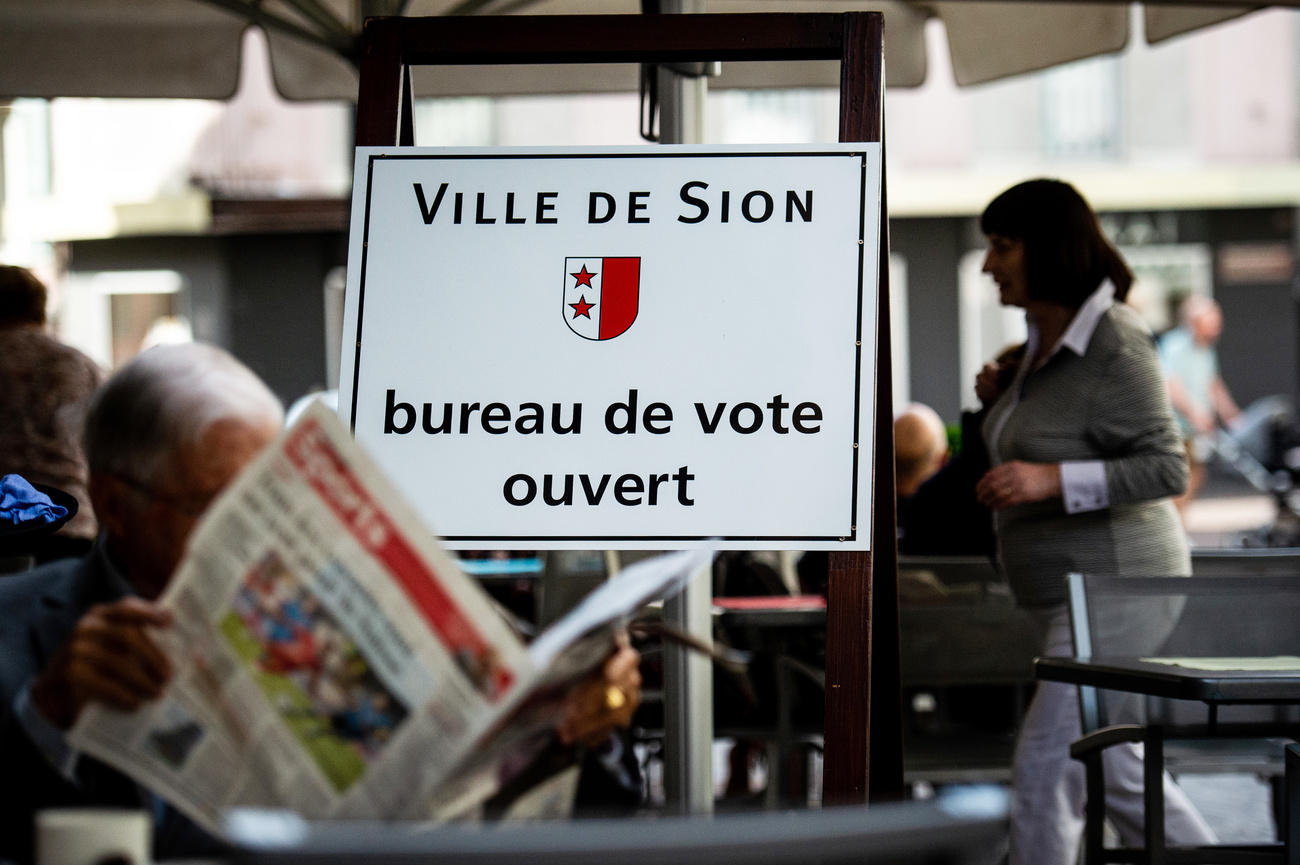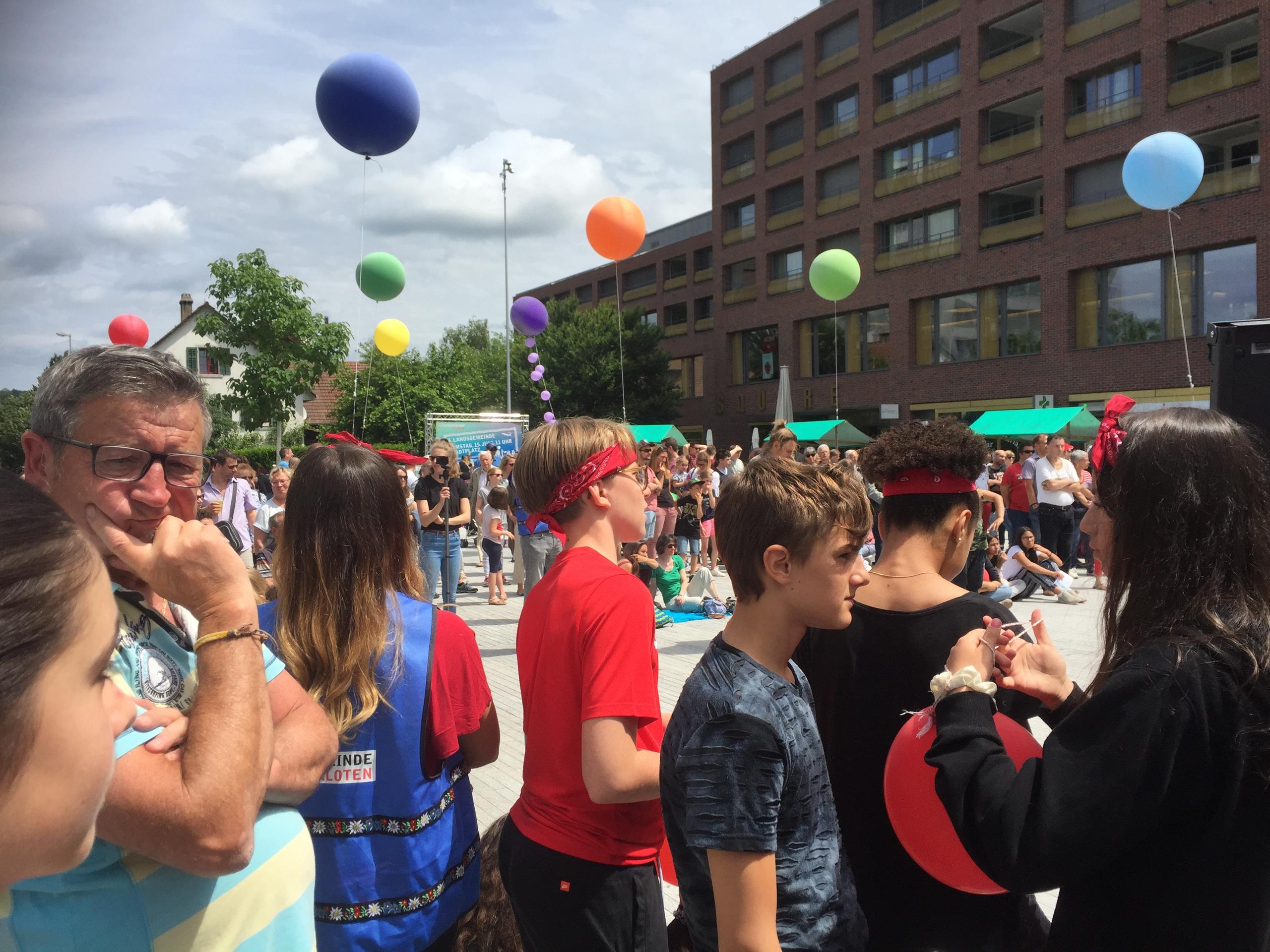Swiss town tests citizen panel to help voters analyse information

The municipality of Sion in southwestern Switzerland is planning a participative democracy experiment, first tried out in the US state of Oregon, that places randomly selected locals on a citizen panel in the lead up to national referendums.
Various inhabitants of the canton Valais municipality will be asked to form a citizen panel that will prepare a report on one of the issues to be put to vote next February 9. The group discussions are to take place this November and will last four days.
This article is part of the swissinfo.ch platform for direct democracy.
The experiment, which is directly inspired by the Citizens’ Initiative Review introduced in the US state of Oregon in 2010, is being run as part of a Swiss National Science Foundation (SNSF) research project.
Project lead Nenad StojanovićExternal link says that the inclusion of citizens in the process will allow them to learn how to “analyse a complex topic, and to show that ordinary citizens have the capacity to understand such topics and form an opinion on them”.
A first for Switzerland
The political scientist says that the 2,000 citizens who should currently be receiving the invitation were chosen randomly from among the 21,000 registered in Sion. The whole procedure is handled by the municipal authorities, who guarantee data security.
Those who are interested can then sign up before the beginning of September. The minimum number needed to run the experiment is 100, the researchers calculated. Should this figure not be reached, everything would revert to square one and the project – including the random selection of names – would start again.
Going by the results in other countries, Stojanović and his team expect about 10% of the invited citizens to accept.

More
What’s a people’s or citizens’ initiative?
Representative sample
If the figure of 100 is reached, a final selection will then be done to arrive at a 20-person citizen panel. And though at this stage the specific selection remains random, it is filtered according to sex, age, political leaning, educational level, and voter turnout history.
“We will therefore have a group that is representative of the electorate in Sion,” says Stojanović.
The panel of 20 will meet over two weekends in November to ask questions, exchange ideas with experts, and discuss among themselves. At the end of all this, they will draft a one-page report summing up the stakes, the major arguments for and against, and their conclusions.
This document, which will also contain the result of a vote carried out within the group, will will be sent to all voters in Sion at the beginning of January, along with voting cards and the official informational booklet published by the government.
Complex information
In Oregon, the Citizens’ Initiative Review has proven to have had a significant impact on informational and interest levels among voters, who say they have more trust in the conclusions of the citizen panel than in the official information sent by authorities.
Will the success, and the effect, be similar in the Swiss context?
Stojanović is optimistic. Less than half of Swiss voters actually go the polls on average, he says, and among the abstentionists may be citizens who “don’t trust elites – those that send out the official booklet – but who might be more inclined to trust ordinary people like them.”
Others find political issues too complex, or haven’t the time to read a whole information brochure, he says. These people also “may be more willing to read a single-page document showing the outcome of a serious process and written in an accessible language.”

In compliance with the JTI standards
More: SWI swissinfo.ch certified by the Journalism Trust Initiative











You can find an overview of ongoing debates with our journalists here . Please join us!
If you want to start a conversation about a topic raised in this article or want to report factual errors, email us at english@swissinfo.ch.